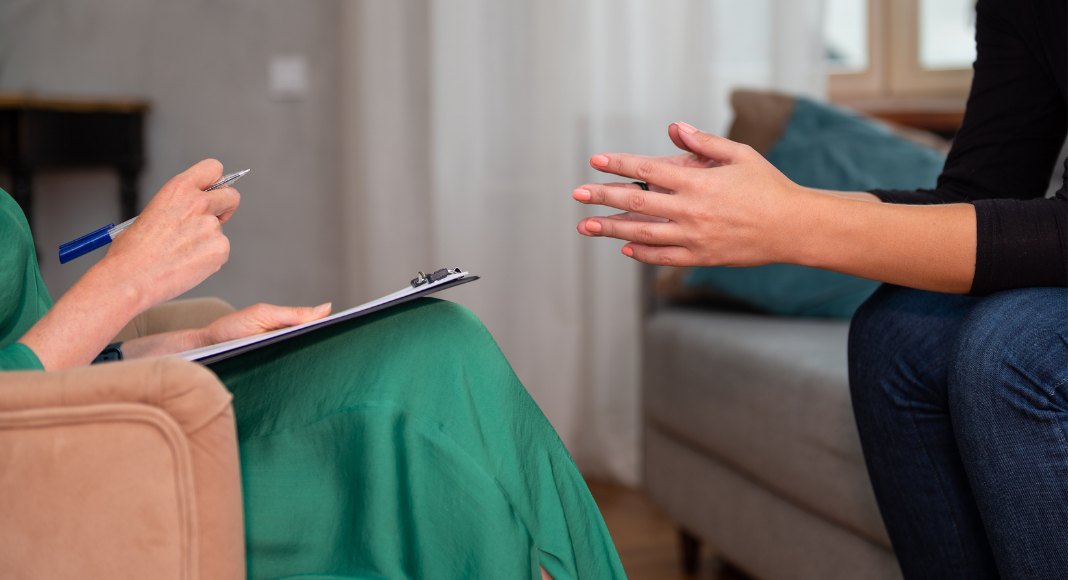 Mental health is so important. Full Stop. Actually, let me say it again for the people in the back. Mental health is the MOST IMPORTANT part of your overall well-being. Why? Because you can green juice, track those steps, and cultivate deep relationships but if you aren’t taking care of your mental health you aren’t healthy. I think this is especially true for mamas.
Mental health is so important. Full Stop. Actually, let me say it again for the people in the back. Mental health is the MOST IMPORTANT part of your overall well-being. Why? Because you can green juice, track those steps, and cultivate deep relationships but if you aren’t taking care of your mental health you aren’t healthy. I think this is especially true for mamas.
The National Alliance on Mental Illness (NAIM) recognizes October 3-9th as Mental Illness Awareness Week (MIAW). A time to bring focus to the millions of Americans living with a mental health condition and the friends, family, and coworkers who surround them. Their goal is to bring awareness, offer resources and reduce the stigma associated with mental illness. You can find out more about their new campaign, “Together for Mental Health” here.
According to NAIM, 1 in 5 U.S. adults experience mental illness each year. I find that statistic to be jarring, but accurate. The majority of us have experienced mental illness in our lives in some capacity. Maybe personally, or maybe via a family member or friend. It affects us all and deserves our full attention. Sharing our stories is one way to bring awareness to mental health and lessen the stigma surrounding it. For me, my story started when I was in my early twenties. My severe anxiety produced panic attacks, weight loss, then weight gain, and a binge drinking problem while in college. Sometimes I could pinpoint the anxiety, but like most people I know with anxiety, I usually could not. It was just this overwhelming feeling of dread. I’d try to explain it, but I couldn’t. At times I felt homesick and uncomfortable in my own home and body. I went to exactly one therapy session that my college provided. They provided 6 sessions for free, but I was told pretty quickly that I could just go on anti-anxiety medicine and be done with the sessions. At 21, that seemed a lot easier than talking to someone about my anxieties, my fears, my deep aching sadness…So, I did that. I stayed on those pills for several years, rarely remembering to take them on time, drinking alcohol when I wasn’t supposed to, and generally ignoring the label. I finally had one doctor explain that I shouldn’t drink on them (why nobody mentioned that to a college senior before then still confuses me) so I promptly quit. The pills, not the drinking-duh. I powered through my late 20’s with exercise, late nights, and lots of friends to help. Most of the women around me struggled with anxiety and handled it the same way–just white-knuckling our way through. I changed my job, my hair, my apartment, boyfriend(s), anything I could to avoid me and my mental illness.
Eventually, I fell in love, got married, and had my first child. All was well. I was blissfully happy and most of my anxiety seemed to evaporate. Huh. Maybe I just needed to grow up. Grow up I did, and then grow out, again. Our second baby came along a year later. He didn’t sleep. I didn’t sleep. We didn’t bond because I was trying to care for a toddler and forgot to ask for help or time to bond with him. It was misery. I started seeing a local therapist and I kept it up for months. Weekly sessions that I forced myself to attend, because talking about your emotions and your well-being isn’t always a priority when you have kids—but it should be. The talking was tough. It was worse than tough. I wanted to cancel almost every appointment. We talked about my anxiety. We went through breathing techniques and journaling and I did some WORK. It is serious work being in therapy. Don’t ever let anyone tell you otherwise. Eventually, I started to ask those around me for help. Please watch my kids for an hour, please do the dishes, please fix your own dinner. The fog lifted a bit.
Then came the anger and the rage. It came so fast and so quickly that it scared me to death. One minute I was fine and the next I was screaming, ear-piercing screaming, at a baby or a toddler or my husband. I felt out of control and I felt terrified. I made the first appointment I could with my GP. To be honest, part of me expected her to try and take my kids and lock me away (see? That is stigma). She didn’t. She sat down and spent an hour that I know she didn’t have and talked to me. She told me her story. She listened to mine. She held my hand when I cried. She made me feel heard. Then she offered her solutions. More therapy, but this time with a low-dose anti-depressant. She explained the risks, the side effects, and how to properly take it. Then she called me every week for three weeks to check in with me. She told me Post-Partum Rage is a thing, but one that rarely gets discussed women are too ashamed to ask for help. She was right. I was ashamed, but I was also scared. Scared that someone would take my children away from me. Scared I’d be labeled “mentally ill” or a “bad mother.” Luckily, I was also too scared to continue living that way, so I got help. Luckily, I had a great doctor who really helped me and a therapist who continued to stay connected. Not everyone is so lucky though and that is why NAIM’s campaign is so important.
So, this week, let’s talk about mental illness. Let’s normalize it. Let’s really be “Together for Mental Health.”








